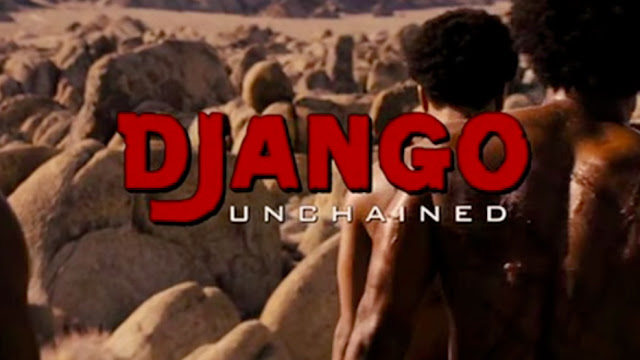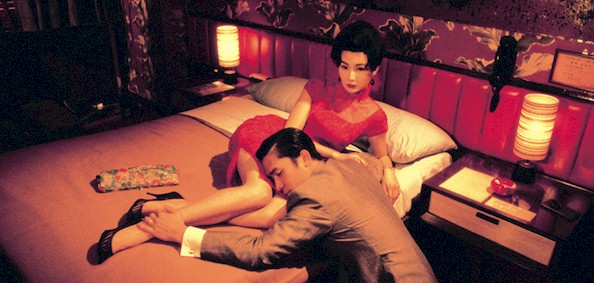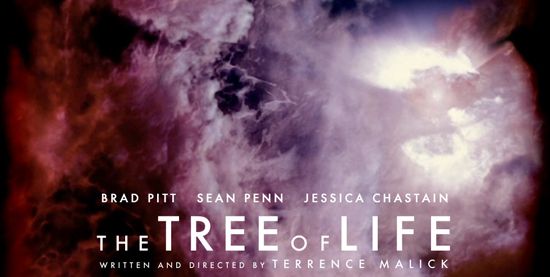Django - It's not only the 'D' that is silent.
I have generally had a love, love, hate, meh, ehh, boke, yawn relationship with Quentin Tarantino (although he neither knew nor cared, and given the sensitivity of my feet that's exactly how I would like it to stay) and I was going to write a post in critique of Django Unchained (2012) but what would be the point of that? It's too late and I'd clearly be wrong after the glowing reviews and awards lavished upon it.
I was going to say that I agree with David Walker that the racial furore surrounding Django Unchained seems particular fascinated by Tarantino's use, or overuse, of the word 'nigger', a point that I think is well argued by David Walker is that this discussion side steps all the real issues;
I was going to suggest that award ceremonies should not exist to simply pat on the back commercially successful cinema, even although that arguably reflects public taste, but that they should exist to award the very technical qualities of each award and to further suggest that Django Unchained lacks many of these, the script does not seem to be particularly well, written and the pacing is poor. The final piece is arguably bloated and self-indulgent and in dire need of judicial editor to keep it all in check (sadly Sally Menke, who edited every film Tarantino directed previously, died in 2010).

I was going to suggest that the very same self indulgence that compels a film maker to cast himself in roles beyond very brief and preferably dialogue free cameos, is a problematic trait when that film is then garnered with some philanthropic kudos, and then compounded when the same film maker seems unable to coherently formulate any intelligent rational for his film and its place in society (I was also going to chuck a link in to his Channel4 interview with Krishnan Guru-Murthy but that would be cheap and I feared having my butt shut down).
I was going to do all those things but then I just thought screw it. Jamie Foxx 'admits that OK, yes, he had to overcome some qualms of his own. But he was reassured by the director's reputation and by the presence of a peerless cast' (Guardian, 2013) and says that the film is supposed to make you angry - this film made me angry after the fact - as this film did not personally shock me with it's on screen depictions of racial violence but with it blinkered reception of the intention. I was also going to add that, in the same article, Jamie Foxx says that George W. Bush is great guy as long as you accept that there is 'a difference between the man and his politics.' This stance I find impossible to justify as I feel a person is their politics.
Finally I was going to say that I thought that there is little consistency in Tarantino's work other than style and what we mustn't do is supplant this with substance. His films quote. They are pastiche and, at times, they may well be very entertaining for it but it may be a stretch to argue that they offer any serious dialogue with any social or cultural ills. His use of material for me barely builds into something new or relevant and to give someone credit for initiating debate is not enough; the killing of Trayvon Martin could be said to have done a similar thing but that does not make it a positive or justifiable act. (Please don't mistake my intention here I'm not trying to trivialise the events surrounding Trayvon's death but trying to make a point that events that stimulate discussion cannot be judged by definition as positive).
I was going to say these thing but I just thought, what's the point? J
I was going to say that I agree with David Walker that the racial furore surrounding Django Unchained seems particular fascinated by Tarantino's use, or overuse, of the word 'nigger', a point that I think is well argued by David Walker is that this discussion side steps all the real issues;
The word and its meaning come attached with an incredibly complex history that no one wants to discuss. Nigger is the symptom of a disease called racism, which is the byproduct of slavery, which we as a nation have yet to fully comprehend or deal with. (BadAzz MoFo, 2013)I was going to have to add though that this lavishes Tarantino with praise that seems ill deserved. Django Unchained and Quentin Tarantino specifically is credited with standing up and saying that something has to be done about our relationship with our racist history, as Walker sees Django Unchained 'as the work of someone who is willing to talk about slavery'. I was going to tell you that this is one of my main problems with pretty much everything that I have heard about the film; Django Unchained may well have kickstarted a debate around race in cinema and, in particular, slavery and the contemporary American nation but that to suggest Tarantino has done a positive thing is to perhaps go too far.
I was going to suggest that award ceremonies should not exist to simply pat on the back commercially successful cinema, even although that arguably reflects public taste, but that they should exist to award the very technical qualities of each award and to further suggest that Django Unchained lacks many of these, the script does not seem to be particularly well, written and the pacing is poor. The final piece is arguably bloated and self-indulgent and in dire need of judicial editor to keep it all in check (sadly Sally Menke, who edited every film Tarantino directed previously, died in 2010).

I was going to suggest that the very same self indulgence that compels a film maker to cast himself in roles beyond very brief and preferably dialogue free cameos, is a problematic trait when that film is then garnered with some philanthropic kudos, and then compounded when the same film maker seems unable to coherently formulate any intelligent rational for his film and its place in society (I was also going to chuck a link in to his Channel4 interview with Krishnan Guru-Murthy but that would be cheap and I feared having my butt shut down).
I was going to do all those things but then I just thought screw it. Jamie Foxx 'admits that OK, yes, he had to overcome some qualms of his own. But he was reassured by the director's reputation and by the presence of a peerless cast' (Guardian, 2013) and says that the film is supposed to make you angry - this film made me angry after the fact - as this film did not personally shock me with it's on screen depictions of racial violence but with it blinkered reception of the intention. I was also going to add that, in the same article, Jamie Foxx says that George W. Bush is great guy as long as you accept that there is 'a difference between the man and his politics.' This stance I find impossible to justify as I feel a person is their politics.
Finally I was going to say that I thought that there is little consistency in Tarantino's work other than style and what we mustn't do is supplant this with substance. His films quote. They are pastiche and, at times, they may well be very entertaining for it but it may be a stretch to argue that they offer any serious dialogue with any social or cultural ills. His use of material for me barely builds into something new or relevant and to give someone credit for initiating debate is not enough; the killing of Trayvon Martin could be said to have done a similar thing but that does not make it a positive or justifiable act. (Please don't mistake my intention here I'm not trying to trivialise the events surrounding Trayvon's death but trying to make a point that events that stimulate discussion cannot be judged by definition as positive).
I was going to say these thing but I just thought, what's the point? J





Comments
Post a Comment